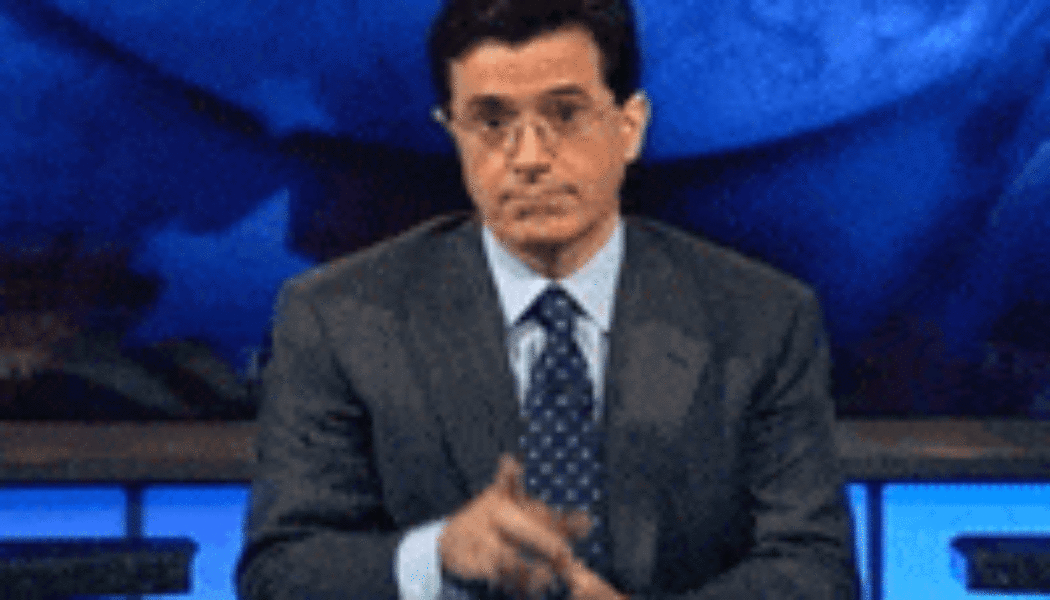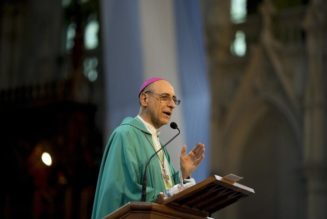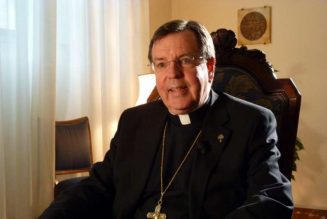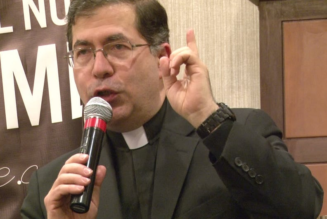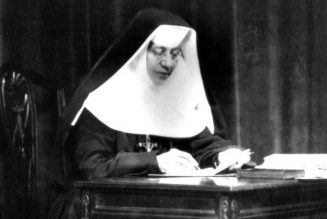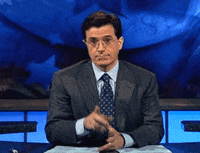
As a rule, journalists are not fond of secrecy and powerful leaders telling their followers to avoid the press.
This is especially true during high-profile meetings that could end up affecting the lives of a billion or so believers and institutions — parishes, schools, hospitals, you name it — affecting millions more.
Thus, I have been waiting to see what the mainstream press, especially in its most elite forms, would do with the decision by Pope Francis to ask participants in the global Synod on Synodality to, well, zip their lips when it comes to talking to the press. At the very least, I expected in-depth coverage of this angle and a hint of muted outrage.
Nope. Once again, we seem to have an interesting and highly symbolic Catholic story that is, apparently, only “news” to religion-market publications and the “conservative” press. Perhaps it is crucial whether journalists identify more with the views of the leader calling for secrecy than they do with the newsmakers who are anxious see an event proceed “on the record”?
Just asking. I, for one, remember how reporters (including me) pushed hard to open (or even invade) closed-door Catholic proceedings when they focused on clergy sexual abuse and earlier Vatican efforts to discipline adventurous (shall we say) American theologians and even bishops. Journalists were certainly convinced that “Reform Dies in Darkness,” or words to that effect.
Anyway, the Associated Press did include the following way down in a “news you can use” round-up at the start of the synod: “Things to know about the Vatican’s big meeting on the future of the Catholic Church.”
The two-year preparatory phase of the synod was marked by a radical transparency in keeping with the goals of the process for participants to listen to each other and learn from one another. So it has come as something of a surprise that Francis has essentially imposed a media blackout on the synod itself.
While originally livestreams were planned, and several extra communications officers were hired, organizers have made clear this is a closed-door meeting and participants have been told to not speak to journalists.
Paolo Ruffini, in charge of communications for the meeting, denied the debate had been put under the pontifical secret, one of the highest forms of confidentiality in the church. He insisted that it was a liturgical moment of prayer and discernment, pointing to a 1990 essay by a late cardinal extolling the benefits of “silence” in communication.
No daily briefings are planned as in previous synods, though five are scheduled over the course of the meeting. Francis has defended the new regime as favoring real dialogue.
Challenged on the lack of transparency, Francis has said he didn’t want “political gossip” leaking out with news of participants duking it out over tough issues.
Ah. Once again, the Vatican seems to think that those seeking public discussions of the hot-button topics on the table — ordaining women, rules about divorce, blessings for same-sex Catholics, celibacy for Roman-rite priest, etc. — are defined by “politics” and “ideology,” as opposed to Catechism-level doctrines.
However, news consumers seeking additional information can continue to turn (#triggerwarning) to sources on the doctrinal right, such as this piece at the National Catholic Register: “Secrecy at the Synod on Synodality: What We Know About Delegates’ Confidentiality Requirements.” Some crucial information here:
The rules, published … on the first day of the 16th Ordinary Assembly of the Synod of Bishops, stipulate that all Synod delegates are “bound to confidentiality and discretion regarding both their own interventions and the interventions of other participants,” a duty that it says will continue to remain in force after the Synod assembly has ended.
For the first time, the Vatican communications office is also withholding the identities of which delegates are addressing the Synod assembly each day and the members of each working group, opting instead to summarize some of the topics discussed over the course of the day’s speeches and small-group discussions.
In other words, delegates are not supposed to release the texts of their own remarks and-or speeches during the debates. Needless to say, they cannot record the remarks of others or take notes and discuss those “interventions” later.
As you would expect, a publication that most journalists would place in the “middle” of the news spectrum followed up on that angle. Thus, there was this Crux headline: “Synod members won’t be punished for giving interviews, official says.” Here is the top of that must-read report:
ROME — Despite Pope Francis’s insistence on a media ‘fast’ during this month’s Synod of Bishops, Vatican officials have said that engagement with the press is a personal decision, and participants who choose to give interviews will not be “punished.”
The clarification came after German Cardinal Gerhard Müller, a former head of the Vatican’s doctrinal office and a figure seen as a critical of the synod, gave an Oct. 5 interview to EWTN.
Speaking to journalists during an Oct. 6 press briefing on the second day of the synod, Italian layman Paolo Ruffini, prefect of the Vatican’s Dicastery for Communications, told journalists that papal indications notwithstanding, “Every member of the synod makes their own discernment” in terms of whether to speak with the media.
Asked about Pope Francis’s insistence on “fasting” from publicity and the decision of some synod participants to grant interviews regardless, Ruffini said the synod is “a time of discernment in silence, it’s not that there’s a gendarme that punishes” members for a perceived violation of the rules.
I would also recommend that journalists, and religion-beat news seekers, check out this Catholic News Agency report: “Secrecy at the Synod on Synodality: What we know about delegates’ confidentiality requirements.”
I will admit that I felt a mild Orwellian shudder when I read that all communications in the synod hall is being controlled by a “Commission for Information.” Thus:
The Synod rules forbid participants from recording, filming, or disclosing their interventions in the Synod’s General Congregations and in the Working Groups, but note that an official audiovisual recording of the General Congregations is kept in the archives of the General Secretariat of the Synod.
OK, I will ask a question that is rather obvious, in this day age: Are synod delegates and support personnel being required to surrender their smartphones when entering the hall?
There is, of course, much more to read the wide, wild world of Catholic social media. But I will end with a note from the Catholic left, as in the National Catholic Reporter story with this headline: “German Cardinal Müller defies pope’s request for confidentiality at synod with EWTN interview.” It ends by noting:
In his own opening remarks … Francis told the more than 450 synod participants to fast from media interviews, complaining that past synods have been reduced to one or two hot button issues. Francis mentioned in particular that, in anticipation of this synod, he had seen press coverage focus on the possibility that the Catholic Church might ordain women as priests.
The unusual synod rules mark a departure from procedures used at four previous synods hosted by Francis. During those gatherings, participants were largely free to give interviews to members of the press. They were also frequently invited to take part in daily press briefings organized by the synod office, so that the delegates could give firsthand accounts of their experiences of the synod process.
The EWTN interview was concerning for obvious reasons:
Müller’s response came in an interview with EWTN host Raymond Arroyo, who asked the cardinal if he remained concerned about the synod being, as Muller had previously characterized it, a “hostile takeover” of the church.
The implication is that doctrinal changes, of one degree or another, are being discussed. Also, a major theme of the synod is the need for Catholic leaders to listen to the views of Catholics who have been locked out of discussions during the reigns of previous popes, such as ordained women, LGBTQ+ leaders, pro-abortion-rights Catholic politicians and divorced Catholics who want to receive Holy Communion, after secular divorce proceedings that are not recognized by the church.
In this view, the tables have turned. The old orthodoxy is no longer in charge and, thus, these leaders now need to speak openly to the press. What happens if elite-newsrooms journalists doesn’t want to listen to them, since these Catholics are on the wrong side of doctrinal history?
Stay tuned.
FIRST IMAGE: A popular .gif of comedian Stephen Colbert, in a previous late-night incarnation.
